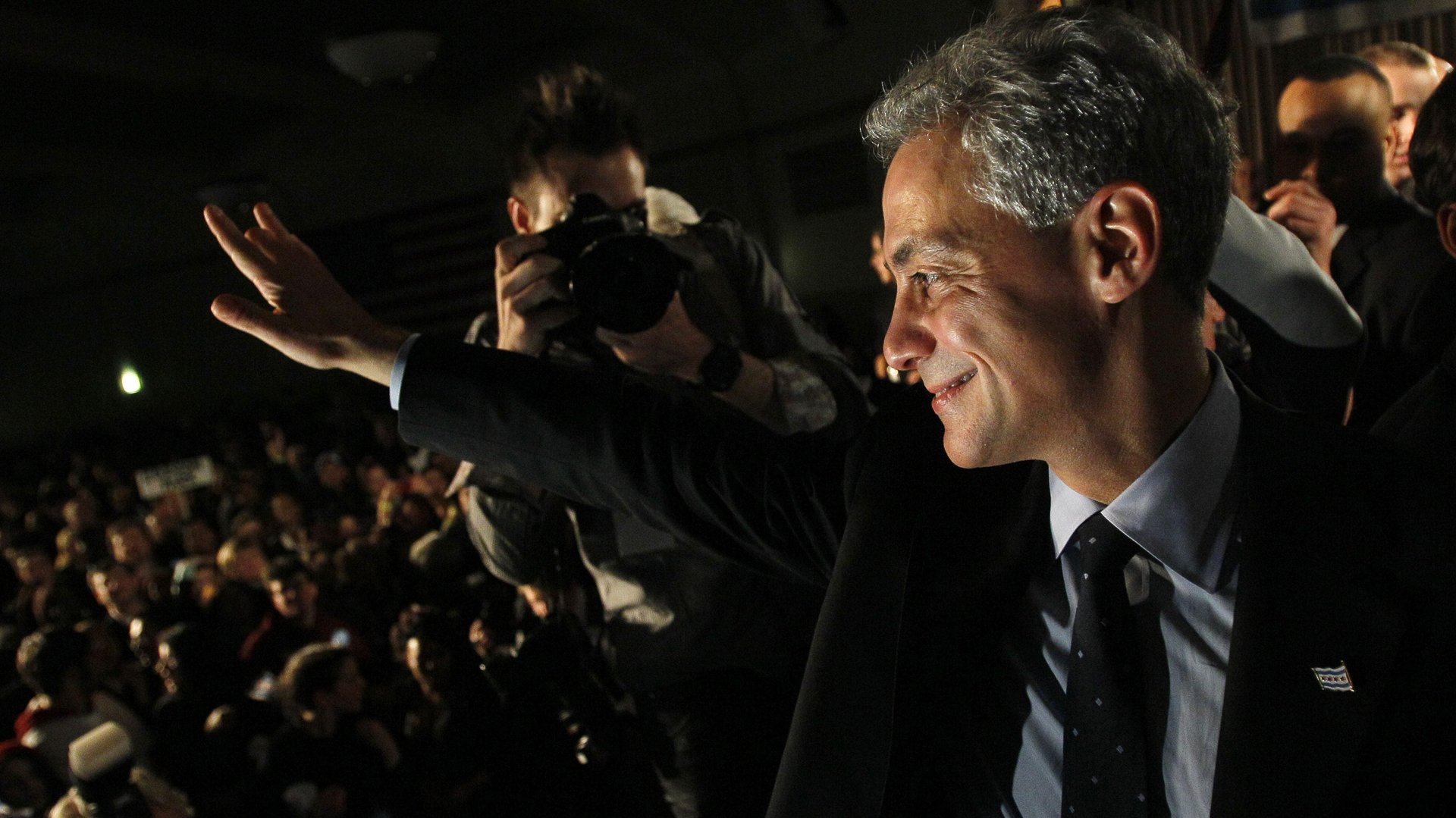Chicago mayor Rahm Emanuel says Trump won’t make cities go backwards on climate change
President-elect Donald Trump may be assembling the most climate change-denying cabinet in recent history, but there is some cheer for environmentalists.


President-elect Donald Trump may be assembling the most climate change-denying cabinet in recent history, but there is some cheer for environmentalists.
While climate deniers control Congress and the White House, about 75% of global carbon emissions come from cities. Those cities are largely run by progressive mayors like Chicago’s Rahm Emanuel, who says his city and others have no interest in turning back the clock on climate policy—not just for environmental reasons but economic ones.
“Even if you didn’t believe in climate change, [green energy] is a pure driver of economic activity,” he said in a talk at the Brookings Institute this week. “We’re crazy to walk away when we can see the R&D capacity that comes from this, let alone the spin-offs that will emerge.
“The city is never going back from this. It’s in our self-interest. This is a classic case where, if the federal government—if he—pulls out of these international agreements, I don’t see the city reversing what it’s going to do.”
The city of Georgetown, Texas, illustrates that it’s not just leftist environmentalists taking this path. Having reviewed the numbers, its Republican mayor announced plans last year to go 100% renewable simply because green energy was cheaper: “I’m probably the furthest thing from an Al Gore clone you could find,” he said.
Not all cities have the same capacity for renewables as sprawling, sun-kissed Texas, of course. But Emanuel, who previously worked as president Obama’s chief of staff, argues there’s a lot to work with even inside those confines—beginning with remaking commercial and residential buildings to become less wasteful: “We now have 54 million sq ft in the city of Chicago in major buildings under retrofit,” he said. “Millennials—which are one of the driving economic engines of urban centers—they wanna go to a building that’s environmentally and energy positive.”
Trump has promised to bring back coal subsidies and is leaning towards appointing an interior secretary who has called to open up natural land to more drilling, which means there may be even more dirty energy flowing into the grid in the coming years.
But a combination of market forces and local government action will render futile any attempt to reboot the coal industry, says the Sierra Club’s Jodie Van Horn. Van Horn is the director of the environmental NGO’s Ready for 100 project, a mission to sign cities up to a 100% renewable goal (she says 20 US cities have now done so).
“There are already more people employed by the solar industry than coal, so that’s a losing battle,” she says. ”The energy savings are real, and the transformation and the impact on the renewable energy market is significant.
“When you remove the irrationality of politics, every rational entity will choose clean energy because it’s cleaner and cheaper. So, the federal government will be setting a very low bar, but cities and companies and states will be moving full steam ahead.”